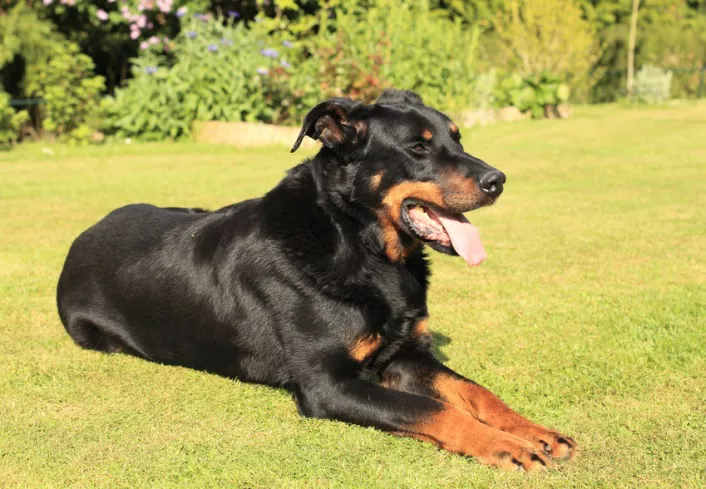Proper nutrition is crucial for the health and well-being of Beaucerons, just as it is for any other breed. Beaucerons are active and energetic dogs, and they have specific dietary needs that should be met to ensure their optimal growth, development, and overall health. In this guide, we will explore the key aspects of Beauceron nutrition, including the types of food, portion control, and special dietary considerations.
1. High-Quality Dog Food
Choosing the right dog food for your Beauceron is the foundation of their nutrition. Here are some important considerations:
Commercial Dog Food: High-quality commercial dog food is formulated to meet the dietary needs of different breeds and life stages. Look for brands that list meat as the primary ingredient and avoid foods with excessive fillers or artificial additives.
Life Stage: Beaucerons have different nutritional needs at different stages of life. Puppies, adults, and seniors all require specific formulations to meet their energy, protein, and nutrient requirements.
Protein: Beaucerons are active dogs and need a diet with a moderate to high protein content. Look for foods that contain animal-based protein sources like chicken, beef, or lamb.
Fat: Healthy fats are essential for Beaucerons, as they provide energy and support coat and skin health. Omega-3 and omega-6 fatty acids are particularly important.
Carbohydrates: While dogs don’t require as many carbohydrates as humans, they do benefit from a moderate amount for energy. Look for whole grains like brown rice or oats in their food.
2. Portion Control
Portion control is essential to prevent overfeeding or underfeeding your Beauceron. Beaucerons are prone to obesity if they consume too many calories, which can lead to health problems. Follow these guidelines:
Read the Label: Most commercial dog foods provide feeding guidelines on the packaging. Start with the recommended amount and adjust based on your dog’s activity level, age, and overall health.
Monitor Body Condition: Regularly assess your Beauceron’s body condition to ensure they are maintaining a healthy weight. You should be able to feel their ribs without them being visible.
Consult Your Veterinarian: Your veterinarian can help you determine the appropriate portion size for your Beauceron based on their specific needs.
3. Fresh Water
Always provide your Beauceron with access to fresh, clean water. Hydration is vital for digestion, circulation, and overall health. Make sure your dog’s water bowl is filled regularly, especially after physical activity.
4. Special Dietary Considerations
Beaucerons may have specific dietary considerations based on their individual needs or health conditions. Here are a few to keep in mind:
Allergies and Sensitivities: Some Beaucerons may have food allergies or sensitivities to certain ingredients. If your dog experiences gastrointestinal issues or skin problems, consider switching to a hypoallergenic or limited-ingredient diet.
Joint Health: Beaucerons are prone to hip dysplasia and other joint issues. Foods that contain glucosamine and chondroitin can help support joint health.
Weight Management: If your Beauceron is overweight, work with your veterinarian to develop a weight management plan. This may involve a prescription weight loss diet.
Special Diets: In some cases, Beaucerons may require specialized diets for medical conditions such as kidney disease, diabetes, or pancreatitis. Consult your veterinarian for guidance.
5. Avoid Harmful Foods
Certain foods are toxic to dogs and should be strictly avoided. These include chocolate, grapes, raisins, onions, garlic, and artificial sweeteners like xylitol. Make sure your Beauceron does not have access to these substances.
Conclusion
Proper nutrition is essential for the health and well-being of your Beauceron. High-quality dog food that meets their specific needs, portion control, access to fresh water, and consideration of any special dietary requirements are key to ensuring your Beauceron leads a healthy and active life.


